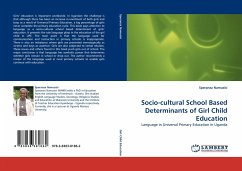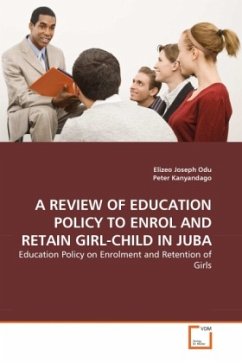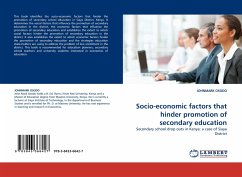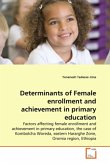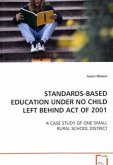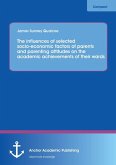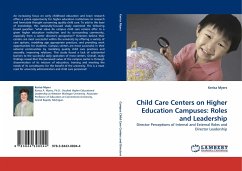Girls' education is important worldwide. In Ugandan the challenge is that although there has been an increase in enrolment of both girls and boys as a result of Universal Primary Education, a big percentage of girls never complete the primary education cycle. This book pays attention to language as a socio-cultural school based determinant of girls' education. It presents the role language plays in the education of the girl child in UPE. The main point is that the language used for communication and instruction in primary schools is inappropriate. There is also an imbalance where girls are presented stereotypically as victims and boys as assertive. Girls are also subjected to verbal rebukes. These issues and others found in this book push girls out of school. The major conclusion is that language has symbolic power that determines whether girls remain in school or drop out. The author recommends a review of the language used in rural primary schools to enable girls continue with education.
Bitte wählen Sie Ihr Anliegen aus.
Rechnungen
Retourenschein anfordern
Bestellstatus
Storno

